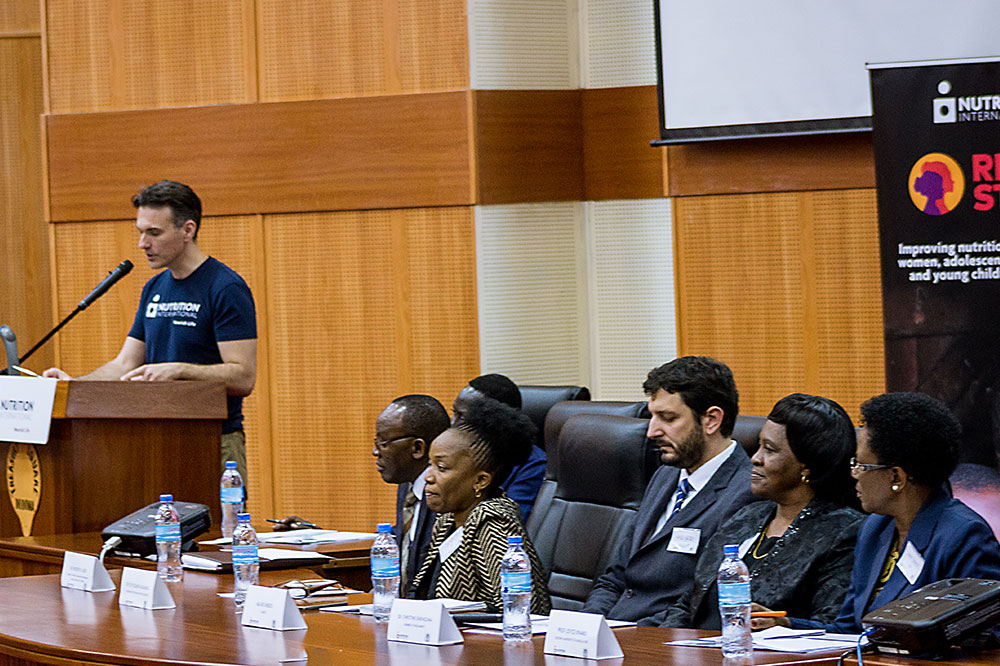Field Story
Ten must see global nutrition stories from 2023
December 18, 2023
Nutrition International brings experts together to discuss role of nutrition in Tanzania’s future
Nutrition International brought together nutrition experts, academics, public servants, parliamentarians and NGO workers for a roundtable discussion on nutrition in Tanzania.
Posted on August 14, 2017


DODOMA, TANZANIA – In recent years, the Tanzanian government has strengthened its commitment to improving nutrition, with initiatives such as the development of the 2016 Food and Nutrition Policy and its strategic implementation action plan, the National Multisectoral Nutrition Action Plan (NMNAP). In light of this, Nutrition International recently hosted a roundtable discussion on nutrition in Dodoma.
Moderated by Dr. Richard Pendame, Nutrition International’s Regional Director for Africa, the session brought together a panel of nutrition experts, academics, public servants from the regional and national levels, parliamentarians and NGO workers to talk about how scaling up nutrition could contribute to helping Tanzania achieve its development goals.
Topics discussed included current nutrition policies and their implementation, nutrition financing mechanisms at the regional level, the linkages between nutrition and other development areas, and the roles of both academia and parliamentarians in advancing the nutrition agenda ― especially for women and girls.
Since we’ve had the plan, policy makers have started to understand the impact of malnutrition. We have guidelines, but we now need to walk the talk.
— Mwitu Waibe, President’s Office, Regional Government and Local Authorities
”Since we’ve had the plan, policy makers have started to understand the impact of malnutrition. We have guidelines, but we now need to walk the talk,” said Mwitu Waibe, President’s Office, Regional Government and Local Authorities ― adding that, in order for nutrition interventions to be scaled up in Tanzania, increased political, institutional and budgetary commitment will be needed.
Other panelists were: Dr. Vincent D. Assey, Ministry of Health, Community Development, Gender, Elderly and Children, Mauro Brero, UNICEF, Dr. Joyceline Kaganda, Tanzania Food and Nutrition Centre, Prof. Joyce Kinabo, Sokoine University of Agriculture, and Dr Christine Ishengoma, Member of Parliament.
The roundtable followed the launch of Right Start in Tanzania, a program to improve the nutrition and health of women, adolescent girls, newborns and young children in the country through a $CAN 2.8M (4.7B TZS) investment over five years to 2020.